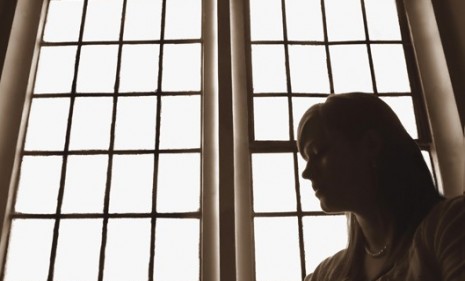Why living longer destroys your faith
A British study has linked increased life expectancy to a decline in church attendance, as young people figure they'll have time later to worry about heaven and hell

A free daily email with the biggest news stories of the day – and the best features from TheWeek.com
You are now subscribed
Your newsletter sign-up was successful
Ever wonder why church attendance appears to be down just about everywhere? British researchers have found a surprising culprit: life expectancy. Economists at the University of East Anglia in England say — in a study published in the International Journal of Social Economics — that as people in developed countries live longer, they put off worrying about deep spiritual questions when they're young, and put off going to church. Here, a brief guide to the findings:
What does life expectancy have to do with going to church?
In countries where life expectancy was higher, young people didn't see much benefit in getting their spiritual lives in order — at least, not yet. Ten additional years of life expectancy was linked to an 8.4 percent decline in the number of people who called themselves religious, and a 15 to 17 percent decline in church attendance. The reason? Young people who expect a long life put off worrying about heaven and hell, says the study's co-author, Dr. Elissaios Papyrakis, which translates into a "posponement of religiosity." In other words, they figure church, mosque, or temple can wait.
The Week
Escape your echo chamber. Get the facts behind the news, plus analysis from multiple perspectives.

Sign up for The Week's Free Newsletters
From our morning news briefing to a weekly Good News Newsletter, get the best of The Week delivered directly to your inbox.
From our morning news briefing to a weekly Good News Newsletter, get the best of The Week delivered directly to your inbox.
How did the researchers figure this out?
They applied the economic principle of cost benefit analysis — identifying positive factors and weighing them against negatives — to look at how the adoption of religion was affected by life expectancy. The data they looked at came from the World Value Survey Dataset and the World Bank. The perceived positives of religion — preparing for the afterlife, for example — were measured against negatives, such as having to spend time at religious services. The researchers controlled for factors such as income, former communism (which typically causes a decrease in religion), and the prevalence of Islam and Catholicism in the countries they studied, and the numbers still held up.
Does the finding contradict previous research?
Yes, in some sense. Previous studies found that churchgoers were more likely to live longer than their non-religious counterparts. Considering that, this new study "is fraught with irony," says David W. Freeman at CBS News.
A free daily email with the biggest news stories of the day – and the best features from TheWeek.com
Are there other reasons church attendance might be down?
Of course. The study's director, Ruth Powell, says the decline is probably more accurately attributed to "major generational changes that have happened over the last few decades" than to life expectancy.
What might this mean for religious institutions?
Papyrakis says they should expect a "graying church," as older people increasingly outnumber younger ones in the pews. To counteract this, they should focus on the benefits of religion in the here and now, not in the afterlife, to attract younger worshippers. "In light of rising life expectancy, it is important to emphasize socioeconomic and spiritual benefits … for example, expanding a person's social circle, communal activities, spiritual fulfillment, support and guidance, rather than uncertain rewards in the afterlife," he says. "These benefits can counterbalance the negative impact of life expectancy on religiosity."
Sources: Fox News, About.com, Sydney Morning Herald
-
 Gisèle Pelicot’s ‘extraordinarily courageous’ memoir is a ‘compelling’ read
Gisèle Pelicot’s ‘extraordinarily courageous’ memoir is a ‘compelling’ readIn the Spotlight A Hymn to Life is a ‘riveting’ account of Pelicot’s ordeal and a ‘rousing feminist manifesto’
-
 The EU’s war on fast fashion
The EU’s war on fast fashionIn the Spotlight Bloc launches investigation into Shein over sale of weapons and ‘childlike’ sex dolls, alongside efforts to tax e-commerce giants and combat textile waste
-
 How to Get to Heaven from Belfast: a ‘highly entertaining ride’
How to Get to Heaven from Belfast: a ‘highly entertaining ride’The Week Recommends Mystery-comedy from the creator of Derry Girls should be ‘your new binge-watch’